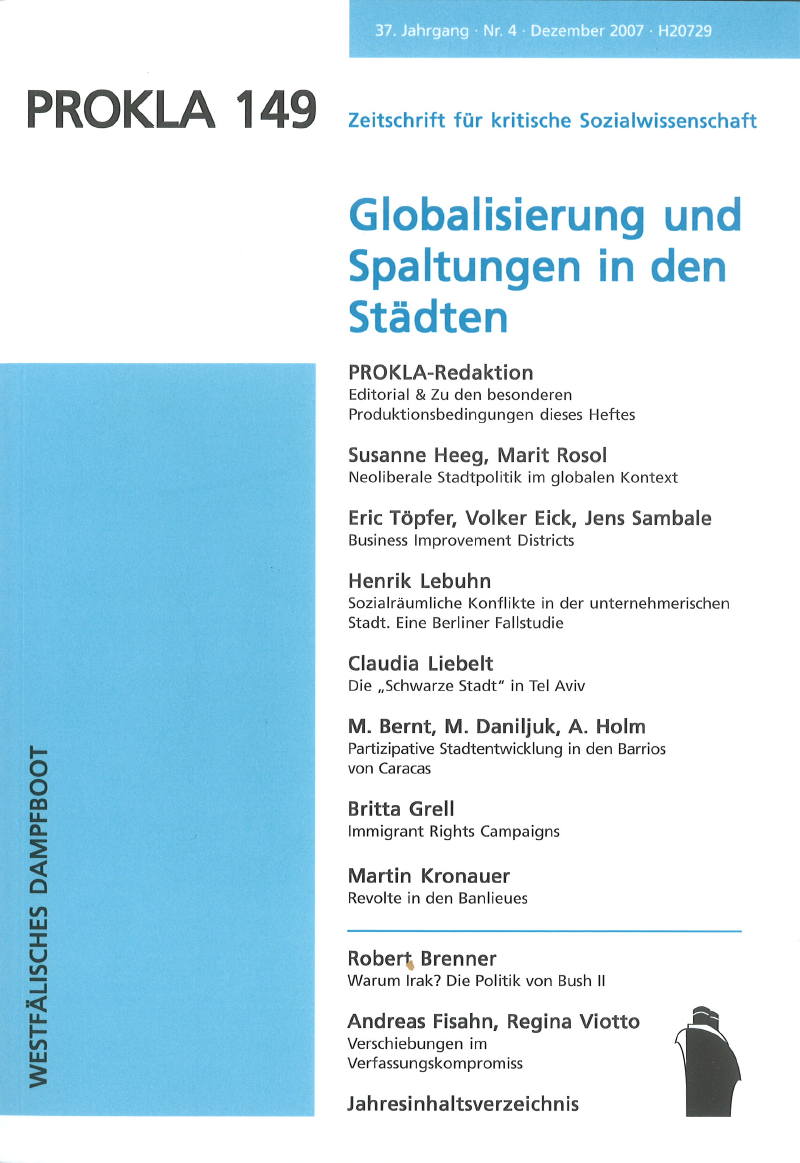Business Improvement Districts - neues Instrument für Containment und Ausgrenzung?
Erfahrungen aus Nordamerika und Großbritannien
DOI:
https://doi.org/10.32387/prokla.v37i149.496Schlagwörter:
Großbritannien, USA, Stadtpolitik, Kanada, Deutschland, Public-Private PartnershipsAbstract
Business Improvement Districts (BIDs) are territorial subdivisions of a city in which property owners or businesses decide to self-impose an additional tax meant for the promotion and development of the area through services such as garbage collection, street maintenance, and security patrols. They were created in North America since the late 1960s and, though they embody many of the powers and privileges of the state, bear none of the responsibilities and limitations of democratic government. Since the early 1990s BIDs found their way due to a fast policy transfer across the Atlantic: First to the UK and now finally to Germany. Here they are regarded either as an offer the local business community cannot afford to refuse (i.e. some Chambers of Commerce) or as "civil society in action" (parts of the Green Party). Others regard them as questionable under constitutional law and as an instrument to privatize cities (the civil rights movement) or as "the next step towards further exclusion" of disadvantaged groups (i.e. churches and homeless service providers). We analyze these claims and offer empirical evidence from North America and Britain and eventually assess the prospects for Germany.





